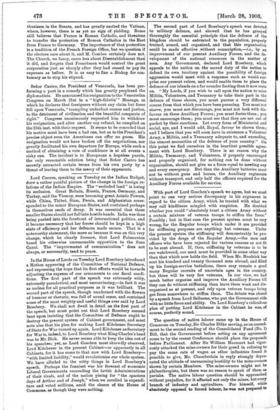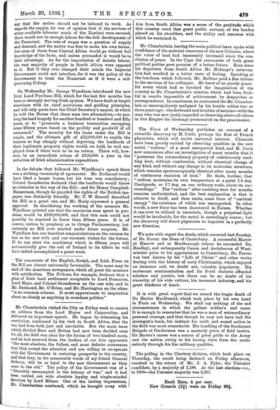The question of native labour came up in the House
of Commons on Tuesday, Sir Charles Dilke moving, as an amend- ment to the second reading of the Consolidated Fund (No. 1) Bill, that the Government before acting on any agreement come to by the recent Conference should place the proposals before Parliament. After Sir William Harcourt had vigor- ously attacked the mine-owners for their greed in refusing to pay the same rate of wages as other industries found it possible to give, Mr. Chamberlain in reply strongly depre- cated the attitude of unreasoning hostility to the mine-owners shown by certain Members. The mine-owners might not be philanthropists, but there was no reason to speak of them as pariahs. The native labour question should be approached without prejudice, for it affected not only the mines, but every branch of industry and agriculture. For himself, while absolutely, opposed to forced labour, he was not prepared to
say that the native should not be induced to work. As regards the supply, he was of opinion that if the services of every available labourer south of the Zambesi were secured, there would not be enough labour for the full development of the Transvaal. The rate of wages was a question of supply and demand, and the native was free to make his own terms; but none of those from Central Africa would go without full knowledge of the facts, and unless persuaded it would be to their advantage. As for the importation of Asiatic labour, the vast majority of people in South Africa were opposed to it. But if they ever changed their minds the Imperial Government could not interfere, for it was the policy of the Government to treat the Transvaal as if it were a self- governing Colony.











































 Previous page
Previous page